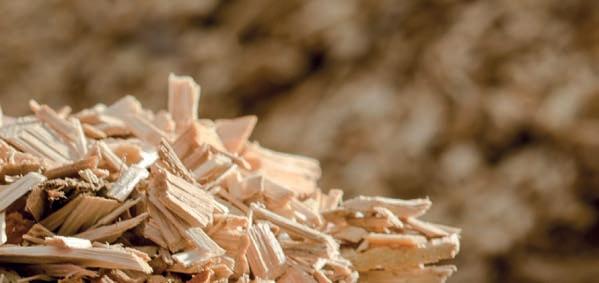
3 minute read
Thermo-oil boiler BioTherm
from Magazín !dea 02 [EN]
by kornfeil
An ecological alternative to heating bakery ovens
The current economic and geopolitical situation is increasingly forcing us to reflect on our dependence on fossil fuels. Green energy is now becoming a big concept in the baking industry, and we are not standing on the sidelines. Our BioTherm eco-friendly boiler offers a solution. We interviewed Ing. Karel Kornfeil, who will introduce this technology to us in more detail.
Advertisement
Until now, the main energy medium for bakeries has been natural gas or light fuel oil. Biotherm is a thermo-oil boiler, i.e., a source of heat transfer medium for thermo-oil ovens of any design. It is a fully automatic boiler for biomass, wood chips, pellets or briquettes up to 50 mm in size, which meets all European environmental standards and is CO 2 neutral.
The BioTherm boiler does not use fossil fuels for its operation, as we have been used to in the past. So, can you describe what we are able to replace these energy sources with?
The most economically cheapest fuel is wood chips, which have up to 2.8–3.3 kW of energy in 1 kg. Other suitable fuels are wood pellets, agropellets or briquettes made from agricultural waste products or wastepaper and cardboard. There is 4–5 kW of energy in 1 kg, depending on the type of material processed.
What about the price and availability of these waste materials? Will this technology be worthwhile even if we are not directly linked to the entities involved in wood production?
It is always logical for any investor to ask how much fuel costs today and what the price will be in the next five years. Or what will be the economic return on the entire investment. In today's turbulent times, when the price of electricity and all fossil fuels is completely out of sustainable reality, it is very difficult to predict future energy price developments. Even the aforementioned alternative fuels are increasing in price today, and the price of pellets is also rising. For this reason, not only companies are stocking up for the winter, but households are also dealing with the same problem. I believe that the prices of these fuels will gradually be solved by the market itself, because there are many suppliers in our country, and they all want to sell fuels. In view of the energy crisis and the environment, diversification of sources should therefore be a major issue for bakeries.
Is this method of heating the boiler sufficient? To what temperature are we actually able to heat the boiler using wood chips and pellets?
BioTherm thermal oil boilers heat the oil to the required temperature of 300°C, just like gas boilers. BioTherm boilers respond continuously to the required output from 30 to 100% power. We also offer boilers with outputs of 200 and 500 kW, and on customer request we are able to assemble them in tandem according to the required oven output.
How can we get this heat into the baking ovens without significant losses?
The boilers are installed in separate boiler rooms with Ekobloks to recover the waste energy. The energy can be fed into the plant through insulated pipes over distances of up to 100 m. However, it should be borne in mind that as the distance from the heat source increases, so do the costs of pipework.
Isn't there a possibility that we will run into some design limitations? What ovens can we connect this system to?

It is mainly a question of the size and location of the boiler room, or access to fuel transport. We usually store pellets in steel silos, or we can leave them lying around in the warehouse.
After all, natural materials leave behind more dirt than fossil fuels, so how about the maintenance and cleaning of this type of boiler?
Biotherm boilers in conjunction with Ekoblok meet all EU environmental standards. Thanks to the wet flue gas path in the Ekoblok, dust particles are also significantly eliminated. The boiler is cleaned automatically, and this process takes place once a week. In terms of maintenance, only an occasional check of the fuel supply is carried out, as well as a weekly check of the combustion chamber and the cleanliness of the cast iron grates from foreign objects.
One of the main factors for getting a BioTherm boiler is definitely energy savings. So, what is the approximate return on this investment?
This is based on realistic biofuel prices. Currently, the price of wood chips is around 0.5 CZK/kW and for pellets in the range of 1–1.3 CZK/kW. However, it is problematic at what price level of gas we calculate the investment.



If we calculate a gas price of 100 €/ mW, the return on investment could be 5 years. However, this is very individual, depending on the operating hours and the load of the technology.
What about the control and setup? Can I change the operating parameters of the boiler in any way?
The entire boiler operation is fully automatic and is controlled programmatically via PC. The operator just selects the fuel type and starts the automatic spiral cleaning after the end of the production at the end of the week.
Do you notice any shortcomings of this boiler?
The operation of such boilers implies the maintenance described above and the responsibility for purchasing and importing fuel.
What types of bakeries would you recommend this thermo-oil heating technology to?


I can recommend it to those bakeries that have thermo-oil ovens or are considering purchasing them regardless of the size of the bakery.












